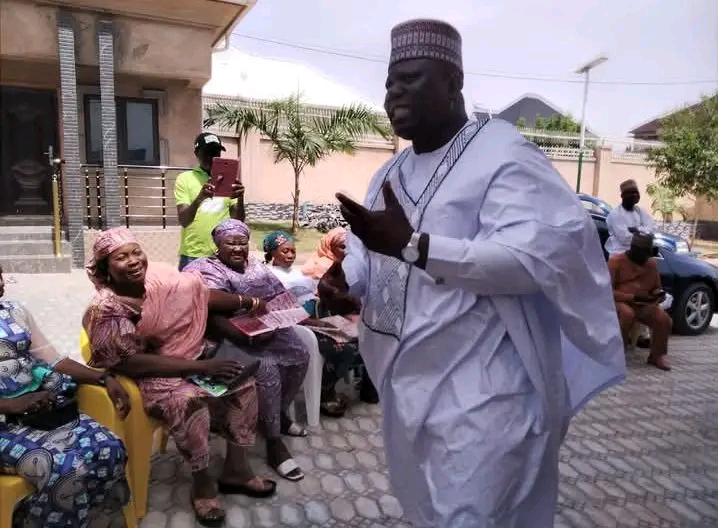By Abdul Lauya
The people of Gombe South are raising their voices with one unified chant: “BK Dawo Dawo”, a Hausa phrase meaning “BK, come back.” This groundswell of public demand follows a recent statement by Senator Bulus K. Amos, who served in the 9th National Assembly (2019–2023), declaring that he has forgiven all political adversaries, associates, and aides, calling on them to also let bygones be bygones in the interest of unity and progress in Gombe South.
For many constituents, Amos’s single term remains the benchmark of purposeful representation. Known for his grassroots engagement, infrastructure-driven interventions, and strategic federal linkages, Amos made visible impacts that residents say remain unmatched. He initiated and completed numerous projects including Solar powered boreholes, connection of communities to the national grid, road construction across Balanga, Billiri, Kaltungo, and Shongom LGAs, while also facilitating youth and women empowerment programs and securing jobs and training opportunities for locals.
His leadership style, disciplined, humble, and people-centered, was praised for uniting diverse political interests in a region often mired in intra-party tensions. Constituents recall his accessibility and consistent presence at town hall meetings, which provided a direct channel between the Senate and the communities he represented.
The call for his return has intensified due to what many describe as a glaring leadership vacuum under the current senator, Anthony Siyako Yaro of the PDP, who assumed office in 2023. Several residents who spoke with Eye Reporters by phone expressed frustration over the senator’s “inaction,” “lack of visibility,” and “near-zero constituency outreach.” Many projects reportedly initiated during Amos’s tenure have either stalled or been abandoned.
Across various social media platforms, Facebook, WhatsApp, young people and community leaders alike are driving the “BK Dawo Dawo” campaign, urging the former senator to heed the call and contest again in 2027. Posters, slogans, and digital banners featuring his name have started surfacing in political circles, signaling early momentum ahead of the next general election.
The comparison between Amos and previous two-term senators from the zone, such as Joshua Lidani, further underscores his unique legacy. While some of these former senators struggled to maintain consistent engagement in their second terms, Amos’s single tenure is remembered for its energy, unity, and delivery, despite facing internal party setbacks, including his controversial ward-level expulsion from the APC in 2023.
As political permutations for 2027 begin to take shape, analysts suggest that Amos stands out as a formidable contender, should he decide to run. Possible aspirants from both the APC and PDP include familiar political names and new technocratic figures; however, none currently enjoy the broad grassroots appeal or name recognition that Amos commands.
The demand for his return transcends party politics, it’s a reflection of the people’s desire for credible and effective leadership. One resident from Kaltungo said, “BK may not have done everything, but at least we felt represented. Now, it’s like we’re in darkness.”
With widespread dissatisfaction over the current representation in Gombe South, constituents are calling for a return to the impactful leadership of Senator BK Amos, chanting “BK Dawo Dawo” across communities and social platforms. His 2019–2023 tenure, remembered for infrastructural strides, unity, and direct engagement, stands in stark contrast to the perceived inaction of the incumbent. As the 2027 elections approach, Amos is seen as a symbol of hope and the preferred choice for effective representation.
For advert placement and inquiries, publication of press releases, and news coverages, please call: Phone: 08052898434 Email: editor@eyereporters.com, click here to view the advert rates.



